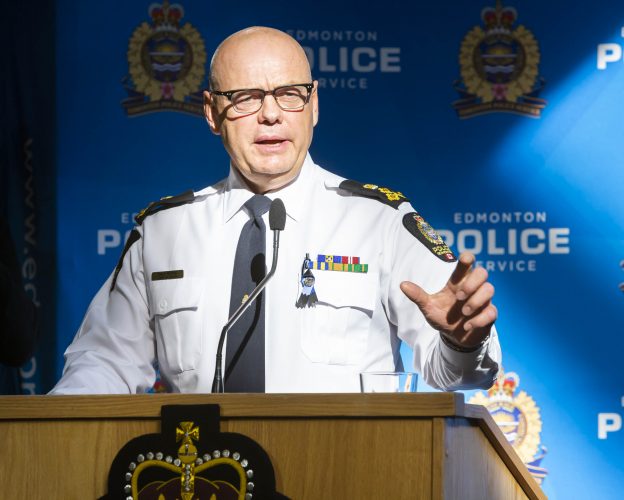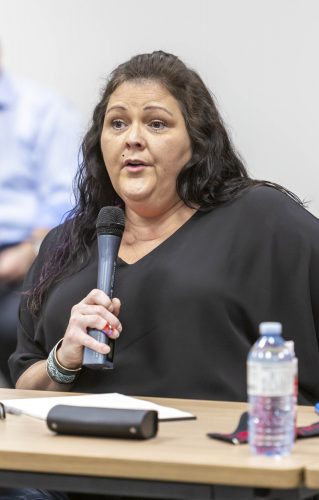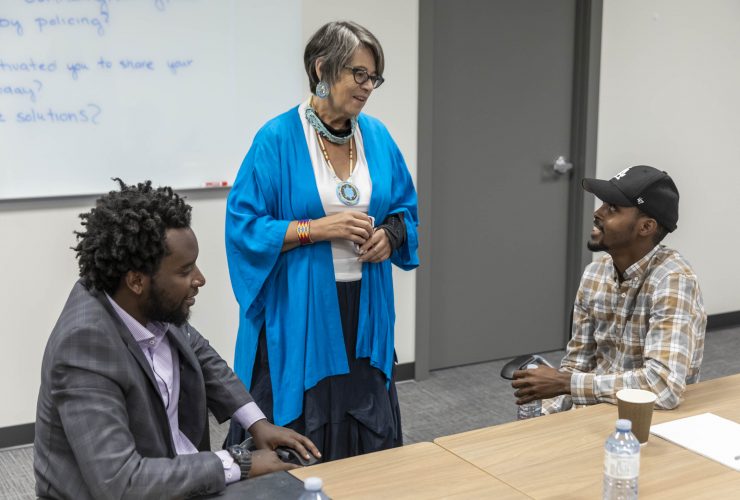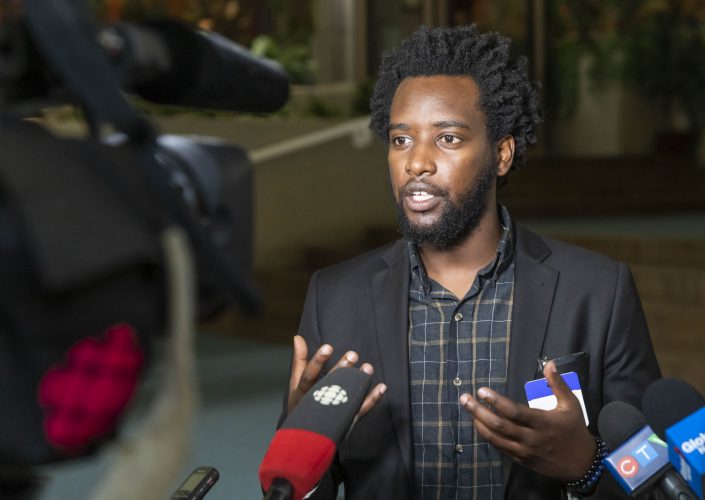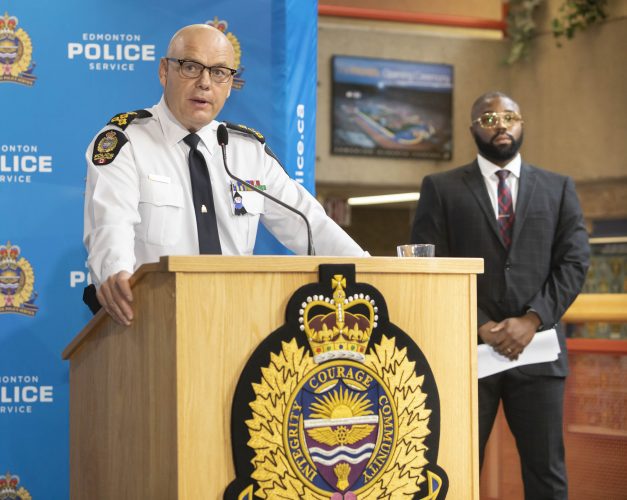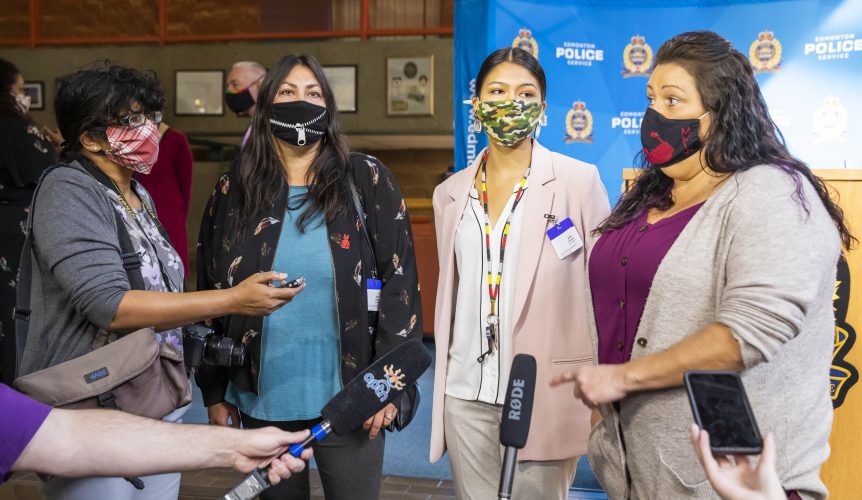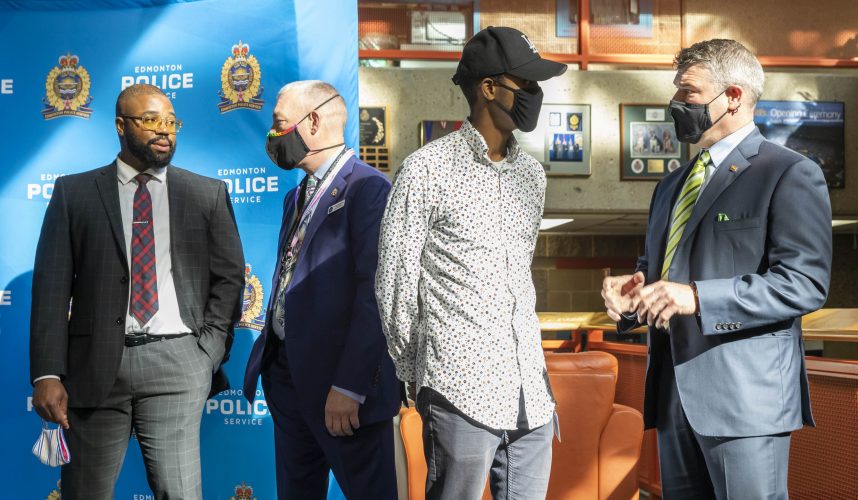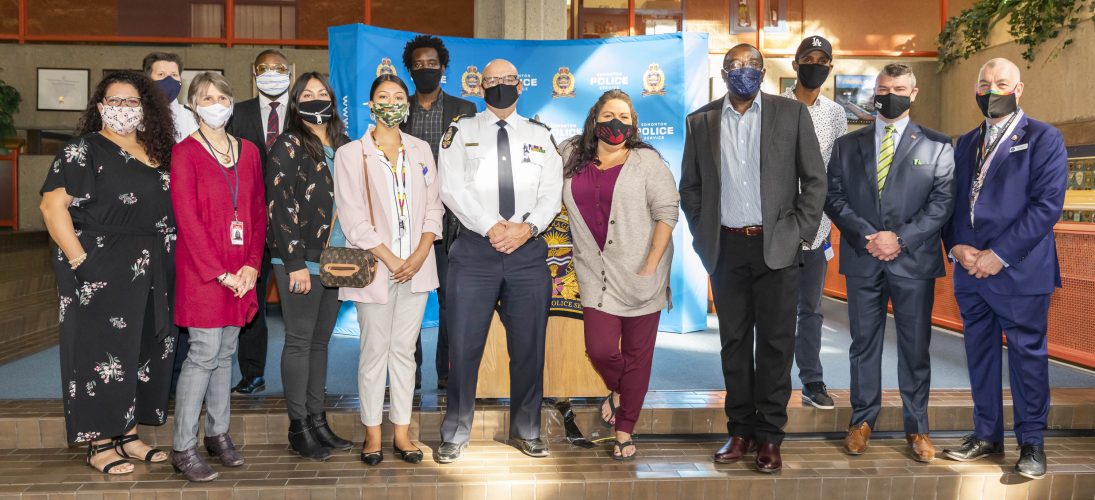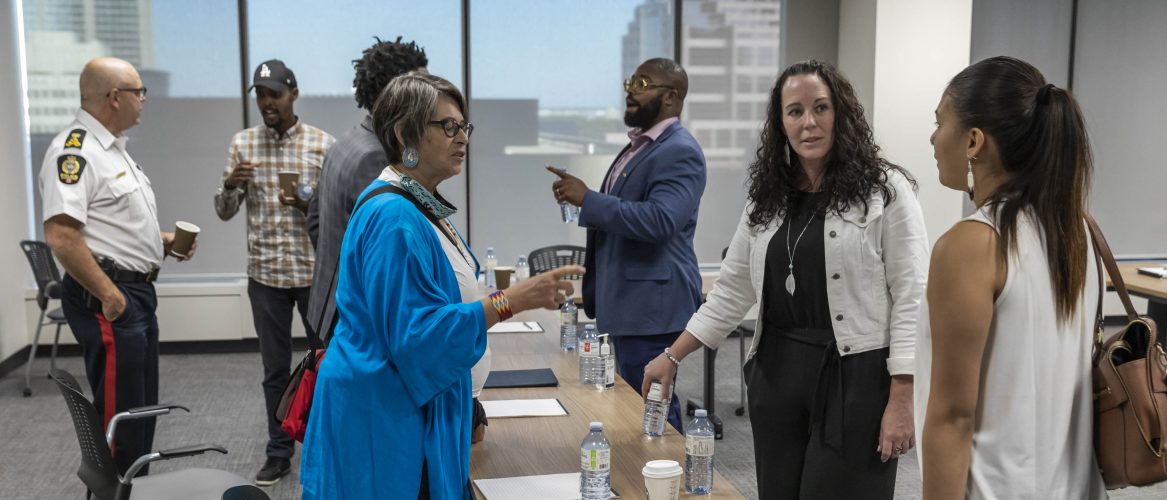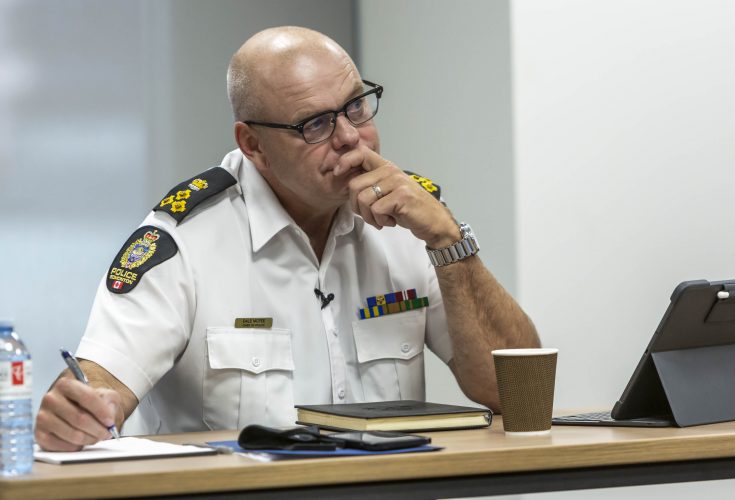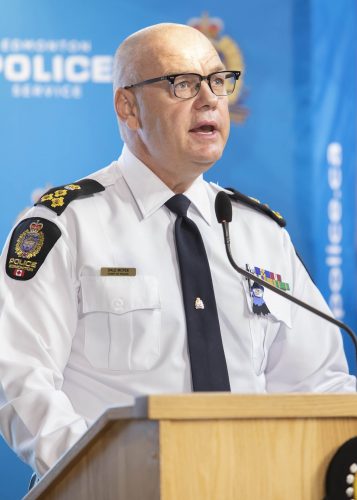
News
EPS commits to action for city’s racialized and underserved communities
The new Chief’s Community Council will be guided by people who experience marginalization, racism and discrimination, as well as community and business partners, and allow for meaningful intercommunity collaboration and problem solving.
September 22, 2020 By Chad Orydzuk, Edmonton Police Service
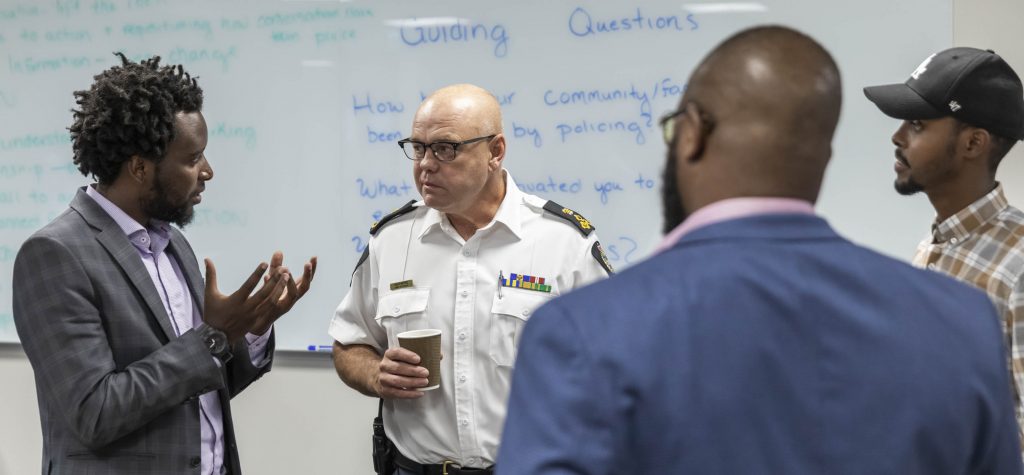 Chief McFee listens to a community member during EPS's first community engagement session.
Photo: EPS
Chief McFee listens to a community member during EPS's first community engagement session.
Photo: EPS Edmonton Police Chief Dale McFee has announced a commitment to action by the Edmonton Police Service (EPS) to engage with the city’s Black, Indigenous, racialized, and underserved communities in improving policing, and in reimagining community safety and well-being.
The new strategy acknowledges current community concerns and calls for change, addresses racial injustice, and advocates for the need to work collectively to build, strengthen and repair police-community relationships.
“The murder of George Floyd launched a movement and a demand for action that required every police service in every city to look inward and ask themselves what path they wanted to take,” McFee says. “I am honoured to say that Edmontonians have chosen a path of equity and progress, and have called on EPS to help them build a better, safer community and a better world. Not every city can say they have done that, and not every city can say they collectively chose a better path forward.”
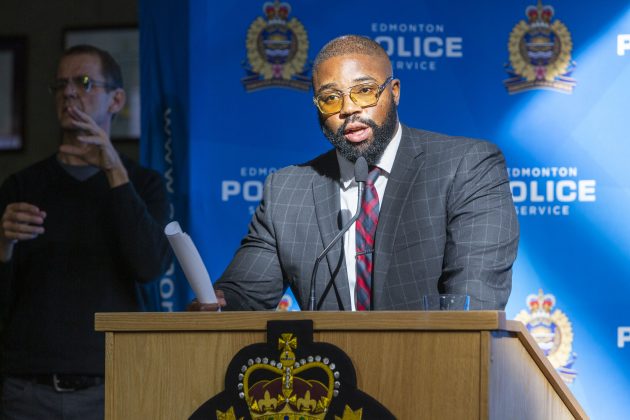
Enyinnah Okere is the executive director of the EPS Value and Impact Division.
Photo: EPS
Edmonton City Council held public hearings in June 2020 to better understand how Edmontonians viewed police. The comments at the hearings highlighted the tenuous nature of police relationships with marginalized communities in Edmonton, and that a segment of the population has historically not felt seen, heard or protected by police. Overall, the need for an equitable, restorative and ongoing approach came to the forefront.
In response, EPS is now moving forward with a commitment to action through community engagement, where safe spaces will be created for extensive conversations with communities, then EPS will work with these communities to implement the required changes as soon as possible.
As part of the ongoing engagement, EPS will also be introducing a new community advisory council, which will work directly with various areas of EPS on changes to policy, procedure and operations. The new Chief’s Community Council will be guided by people who experience marginalization, racism and discrimination, as well as community and business partners, and allow for meaningful intercommunity collaboration and problem solving.
EPS recently kicked off the first of its community engagement sessions, and the response from participants was both powerful and promising – not only in helping to build understanding and trust, but in providing new opportunities to discuss concerns and ways to work together.
“We have heard from community members and our own employees, where our actions and interactions have not been positive,” McFee adds. “In order to be the good and just people we know ourselves to be, we must acknowledge some uncomfortable truths, and ask ourselves what steps we are taking to hold ourselves accountable. I believe in the Edmonton Police Service’s ability and willingness to rise to this occasion. I believe we have dedicated professionals who genuinely wish to serve their community and make a positive impact.”
These engagement sessions will be offered across the city through 2021 and groups also have the option of hosting their own events. Those who do not feel comfortable sharing their stories in an open setting, or are looking for more information on the engagement process, can visit www.epsinput.ca to get involved in the conversations.
“Being an antiracist and responsive police service is an incredibly multifaceted task, and we become both the driver and the subject of necessary social change,” McFee says. “This requires equitable change in our own organization, our training, the kind of environment we provide in our workplaces, in the way our internal relationships work, the way we budget, and in how we build partnerships to drive progress. What is most important however, is how we establish and sustain our relationships with the community we are here to protect and serve, because we all want a police service that we can be proud of. We look forward to engaging with community members who are ready and willing to roll up their sleeves and work together towards solutions.”
Print this page
